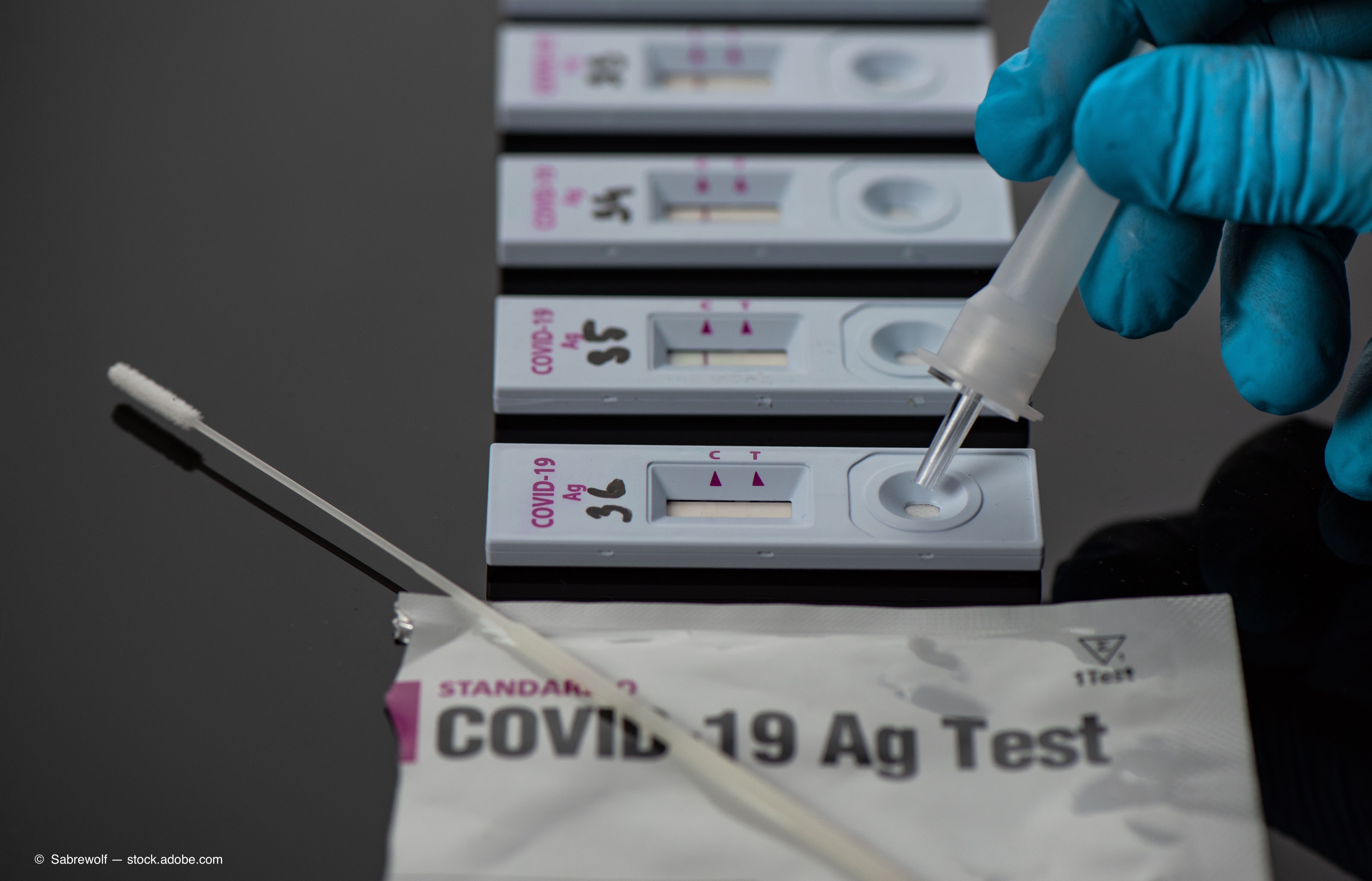- Therapeutic Cataract & Refractive
- Lens Technology
- Glasses
- Ptosis
- AMD
- COVID-19
- DME
- Ocular Surface Disease
- Optic Relief
- Geographic Atrophy
- Cornea
- Conjunctivitis
- LASIK
- Myopia
- Presbyopia
- Allergy
- Nutrition
- Pediatrics
- Retina
- Cataract
- Contact Lenses
- Lid and Lash
- Dry Eye
- Glaucoma
- Refractive Surgery
- Comanagement
- Blepharitis
- OCT
- Patient Care
- Diabetic Eye Disease
- Technology
COVID-19 rapid testing linked to low rate of false positive results
Canadian researchers have found that rapid antigen tests to detect the SARS-CoV-2 virus are associated with a very low rate of false positive results.

Canadian researchers have found that rapid antigen tests to detect the SARS-CoV-2 virus are associated with a very low rate of false positive results.
Those that do occur may be the result of a batch issue, the timing of the test, or an issue with the testing as performed by the patient,1 according to Joshua Gans, PhD, and colleagues, from the University of Toronto, Toronto, Ontario.
The Creative Destruction Lab Rapid Screening Consortium implemented the rapid antigen tests as another protection against viral transmission in the workplace.
During the study, conducted from January 11 to October 13, 2021, employee volunteers self-tested twice a week at the workplace or home. If a test was positive the patient was referred for a polymerase chain reaction (PCR) test within 24 hours.
Over 900,000 rapid test were used in 537 workplaces, A total of 1, 322 tests were positive (positive rate, 0.15%). The investigators reported that of the positive test, 1,103 had PCR information available.
“The number of false-positive results was 462 (0.05% of screens and 42% of positive test results with PCR information).
Of these, 278 false-positive results (60%) occurred in 2 workplaces 675 km apart run by different companies between September 25 and October 8, 2021.
All of the false-positive test results from these 2 workplaces were drawn from a single batch of Abbott’s Panbio COVID-19 Ag Rapid Test Device,” the investigators reported.
Rapid test considerations
In commenting on the results, they suggested that the cluster of false positive tests may have been the result of manufacturing issues rather than implementation.
“These results inform the discussion of whether rapid antigen tests will result in too many false-positives that could overwhelm PCR testing capacity in other settings.2,3
Also, the results demonstrate the importance of having a comprehensive data system to quickly identify potential issues,” they commented.
Being able to spot issues with the batches both allows workers to get back to work quickly and identify problem batches quickly.
Another consideration was that the tests may have been performed too early or too late in the infection.
References
1. Gans JS, Goldfarb A, Agrawal AK, et al. False-positive results in rapid antigen tests for SARS-CoV-2. JAMA Published online January 7, 2022. doi: 10.1001/jama.2021.24355
2. Kretschmer A, Kossow A, Grüne B, et al. False positive rapid antigen tests for SARS-CoV-2 in the real-world and their economic burden. J Infect Published online August 17, 2021. doi:10.1016/j.jinf.2021.08.020PubMedGoogle Scholar
3. Ogawa T, Fukumori T, Nishihara Y, et al. Another false-positive problem for a SARS-CoV-2 antigen test in Japan. J Clin Virol 2020;131:104612. doi:10.1016/j.jcv.2020.104612
